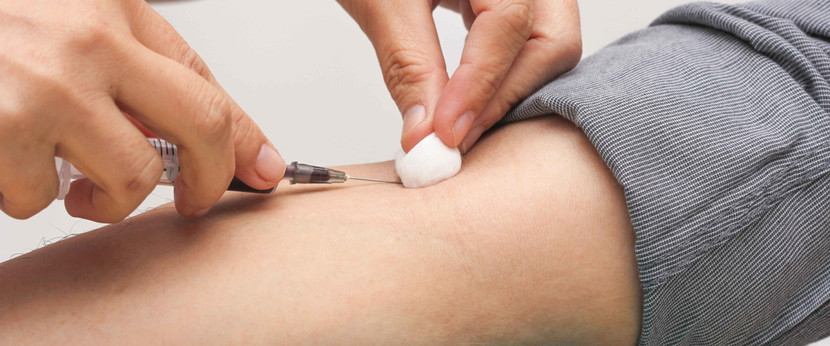Everything You Need to Know About Syphilis Showing in a Routine Blood Test
Are you wondering if syphilis would show up in a routine blood test? It's an important question, as early diagnosis and treatment can help prevent severe complications from this sexually transmitted infection (STI).
Syphilis is a highly contagious and potentially life-threatening sexually transmitted infection (STI). While it can be treated, it can cause serious long-term health complications if left untreated.
So, it is crucial to know whether or not a routine blood test can detect the presence of syphilis. In this blog post, we will cover everything you need to know about whether or not syphilis shows in a routine blood test.
Read on to learn more!
What is Syphilis?
Syphilis is a sexually transmitted infection caused by the bacterium Treponema pallidum. It is spread through direct contact with an infected person's genitalia, mouth, or rectum. Syphilis can cause serious health problems if not treated.
The infection can be divided into four stages: primary, secondary, latent, and tertiary. In the preliminary stage, the first symptom is a sore called a chancre that appears on the genitals, rectum, or mouth.
During the secondary phase, more sores may occur, along with fever and swollen lymph nodes.
In the latent stage, there are no symptoms, but the bacteria remain in the body and can be passed to others through sexual contact.
The tertiary stage can occur 10-30 years after the initial infection and may involve damage to the heart, brain, eyes, and other organs.
If left untreated, syphilis can be deadly. Early diagnosis and treatment are crucial to preventing the disease from progressing to a more severe stage.
What are the Symptoms of Syphilis?
Syphilis is one of the most common STIs and can be spread through contact with an infected person's body fluids, such as through vaginal, anal, or oral sex.
It is important to be aware of the signs and symptoms of syphilis so that you can seek prompt treatment if needed.
The most common symptoms of syphilis are sores, rashes, and lesions on the skin, but there can also be flu-like symptoms such as fever, swollen lymph nodes, and sore throat.
In the early stages of infection, the sores that can form may look like small red bumps or be larger and more painful.
These sores can occur in the genital area, on the lips, in the mouth, or around the rectum. As the infection progresses, these sores can become ulcers.
A syphilis rash can appear anywhere on the body, although it most commonly appears on the palms of the hands and soles of the feet.
The rash looks like tiny round spots or scars and is usually not itchy. It is important to note that these rashes can sometimes be confused with other conditions like scabies.
How is Syphilis Transmitted?
Syphilis is usually transmitted through unprotected sexual contact, but it can also be transmitted from mother to baby during pregnancy or childbirth. Syphilis can be transmitted through contact with open sores, even if there is no intercourse involved.
When left untreated, syphilis can cause serious complications, so it's important to know how it is transmitted and the risks of contracting it.
To prevent the spread of syphilis, it's important to practice safe sex, including using condoms, avoiding high-risk behaviours, and getting tested regularly.
People at risk of contracting syphilis should speak with their doctor about the possibility of receiving a routine blood test to check for the infection.
This blood test will help detect if someone has been infected with syphilis and allow them to get the necessary treatment to avoid further health complications.
Can Syphilis be Prevented?
Fortunately, syphilis is preventable and can be treated with antibiotics. To reduce your risk of contracting syphilis, it's important to practice safe sex and get tested regularly.
When preventing syphilis, the most important thing you can do is practice safe sex. This means using condoms or dental dams during any sexual activities that involve skin-to-skin contact.
It's also important to limit the number of sexual partners you have and avoid having unprotected sex with someone with an STI.
If you're sexually active, it's important to get tested for syphilis regularly. Most routine blood tests include a test for syphilis, so if you're getting your blood drawn for any other reason, ask your doctor to check for syphilis.
If you do test positive for syphilis, treatment is available and effective.
Remember, syphilis is preventable and treatable. By practising safe sex and getting tested regularly, you can reduce your risk of getting infected and spreading the infection to others.
Blood Testing For Syphilis
Two blood screenings are commonly used to identify syphilis at an early stage: the rapid plasma reagin (RPR) and the Venereal Disease Research Laboratory (VDRL). To find out if you have syphilis, take this test which will yield a result within a day or two.
Due to how a positive or negative result can rely on test numbers or timing, it is usually necessary to carry out several blood tests to diagnose a case of syphilis.
This is because the RPR (Rapid Plasma Reagin) test may yield a false negative if the subject suffers from syphilis which can give a false-negative reading with the VDRL (Venereal Disease Research Laboratory) test.
Conclusion
In conclusion, the answer to the question, Would Syphilis Show in a Routine Blood Test? is yes. People need to be aware that syphilis may be present in their bodies without any visible symptoms.
A routine blood test is the only way to diagnose this sexually transmitted infection definitively. Fortunately, syphilis is easy to treat and can be completely cured if caught early enough.
That's why it's important to practice safe sex using condoms like British Condoms, get tested regularly, and see a doctor immediately if you experience any unusual symptoms or pain.
By taking these steps, you can stay healthy and help stop the spread of syphilis.



